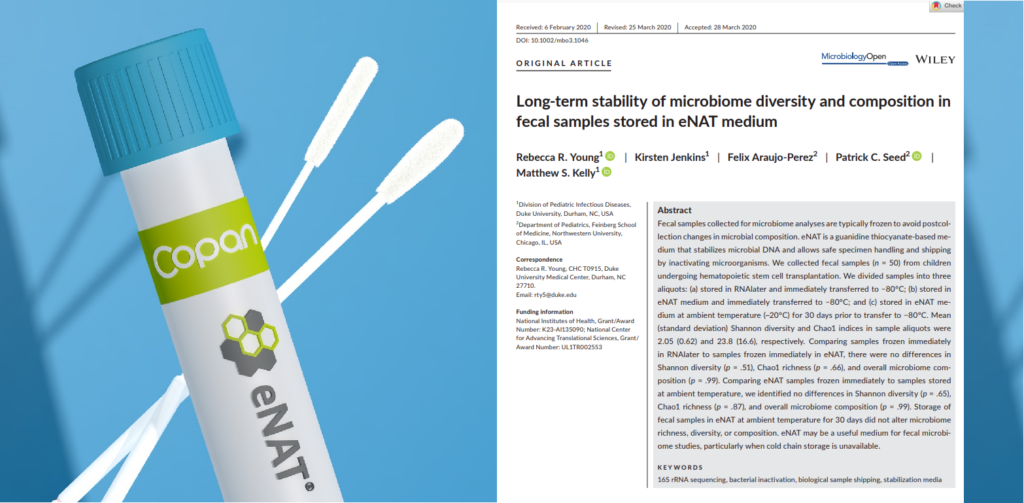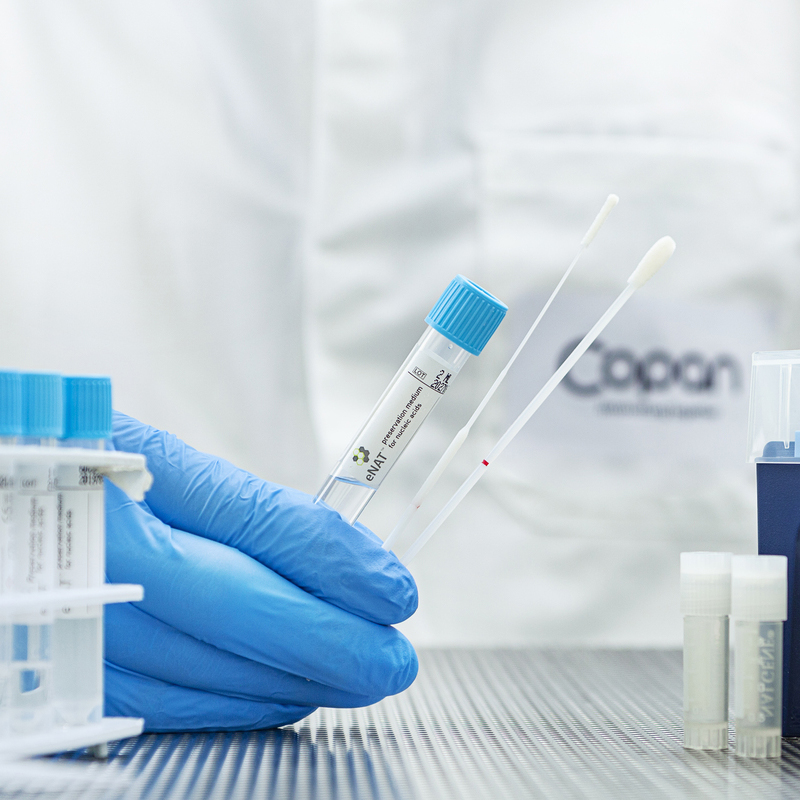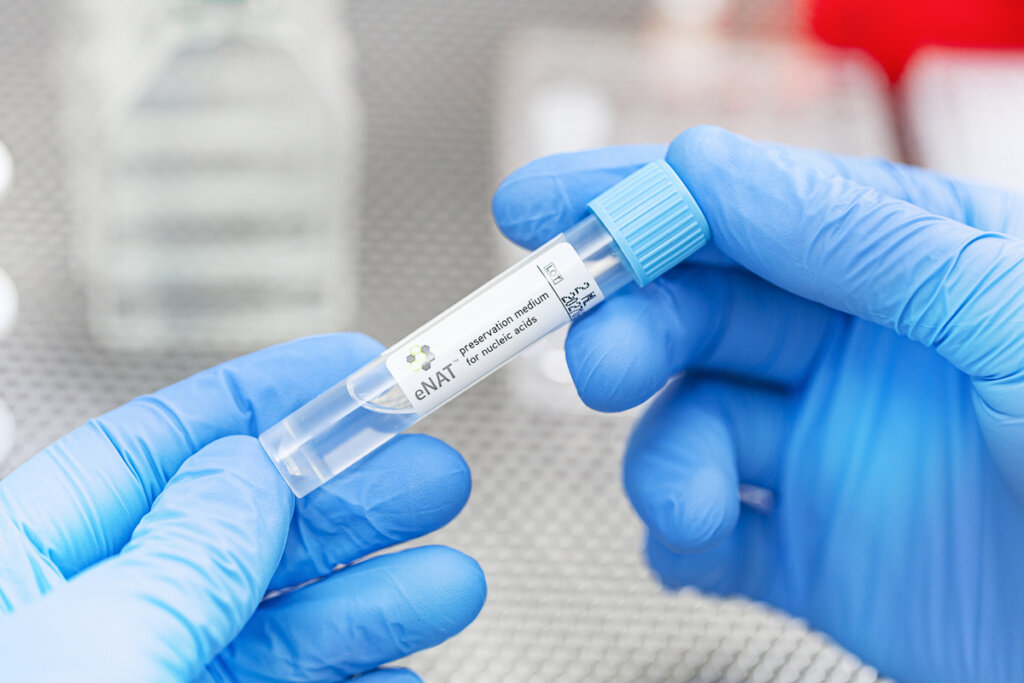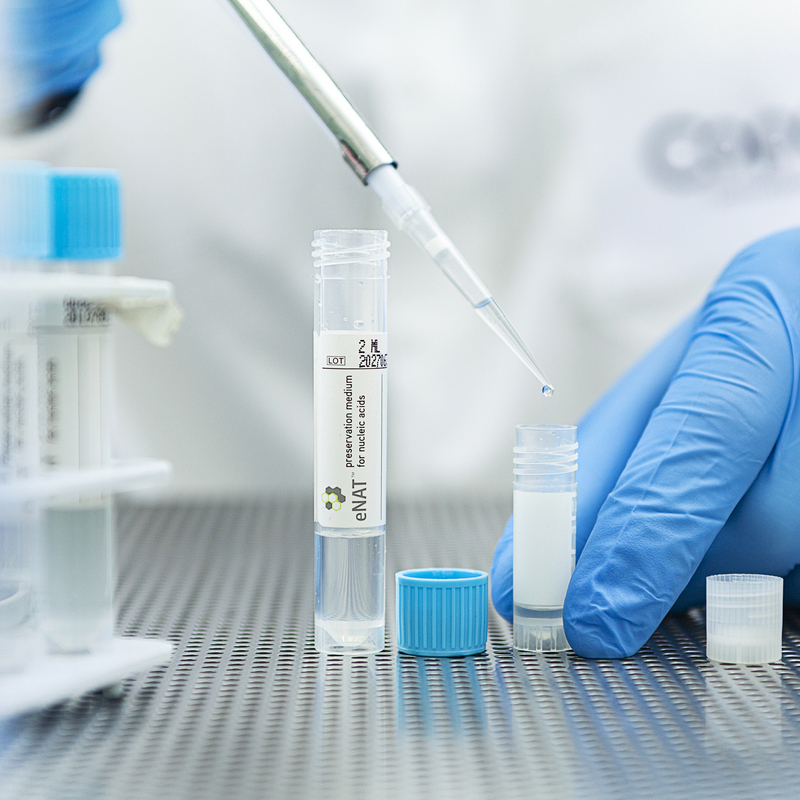
The human gut microbiome plays a critical role in health and disease, with growing evidence linking microbial composition to immune function, metabolism, growth and development, and protection against infection.
Studying the gut microbiome often relies on the analysis of fecal samples, as they provide a non-invasive window into the complex microbial communities inhabiting the intestinal tract. However, maintaining the integrity of these microbial profiles during sample collection, transport, and storage poses significant challenges.
Traditional methods involving freezing samples at -80°C are not always feasible, particularly in resource-limited settings or during home sample collection. Therefore, identifying reliable and convenient preservation methods is crucial for advancing microbiome research.
Introduction
At Copan, we are committed to providing innovative solutions for sample collection and transport that enable cutting-edge molecular diagnostics and research. A recent study published in MicrobiologyOpen validates the effectiveness of Copan’s eNAT® medium for preserving fecal samples for microbiome analysis, even with prolonged storage at room temperature (Young et al., 2020).
Read the Full Study
Study Design
The study, conducted by researchers at Duke University and Northwestern University, compared the microbiome composition of 50 fecal samples stored in different conditions:
- RNAlater™ solution and immediately frozen at -80°C (standard method)
- eNAT® medium and immediately frozen at -80°C
- eNAT® medium and stored at room temperature (20°C) for 30 days before freezing
- eNAT® vs RNAlater™: Equally Effective for Immediate Freezing
Using 16S rRNA sequencing, the researchers found no significant differences in microbiome diversity, richness, or overall composition between samples stored in RNAlater™ vs eNAT® and frozen immediately (Young et al., 2020). This demonstrates that eNAT® is just as effective as RNAlater™, a common preservation method, for maintaining an intact microbiome profile.
Room Temperature Stability: A Major Advantage of eNAT®
Importantly, the study showed that fecal samples can be stored in eNAT® at room temperature for 30 days with no changes in microbiome diversity or composition compared to samples frozen immediately (Young et al., 2020). This room temperature stability is a key advantage of eNAT®, enabling greater flexibility in sample collection and transport.
Why eNAT® is Optimized for Molecular Applications
eNAT®’s unique guanidine thiocyanate-based formula completely inactivates microbial viability within 30 minutes, ensuring safe handling of potentially infectious specimens. It also lyses cells and prevents nuclease degradation, allowing for high-quality nucleic acid preservation. eNAT® is validated for use with numerous molecular assays and is FDA-cleared for Flu A RNA stabilization with implied use for COVID-19 samples.
Pairing eNAT® with FLOQSwabs® for Superior Sample Collection
To further expand testing capabilities, eNAT® is paired with Copan’s patented FLOQSwabs®. These flocked swabs provide efficient sample uptake and elution, enhancing the recovery of biological specimens for downstream diagnostic applications.
 Conclusion
Conclusion
The study highlights the effectiveness of eNAT® as a versatile solution for fecal microbiome research. By providing reliable preservation at room temperature and inactivation of infectious agents, eNAT® can greatly expand the possibilities for studying the microbiome in diverse settings. At Copan, we are proud to offer innovative products like eNAT® and FLOQSwabs® that support cutting-edge molecular research.
References
- Young, R. R., Jenkins, K., Araujo-Perez, F., Seed, P. C., & Kelly, M. S. (2020). Long-term stability of microbiome diversity and composition in fecal samples stored in eNAT medium. MicrobiologyOpen, 9(7), e1046. https://doi.org/10.1002/mbo3.1046





